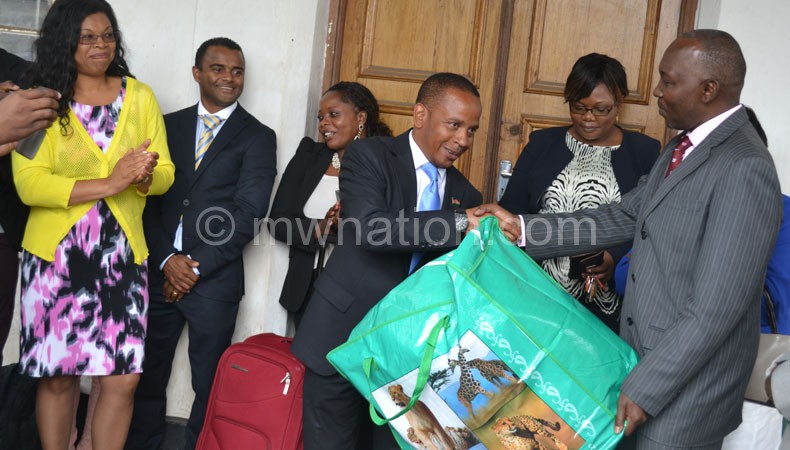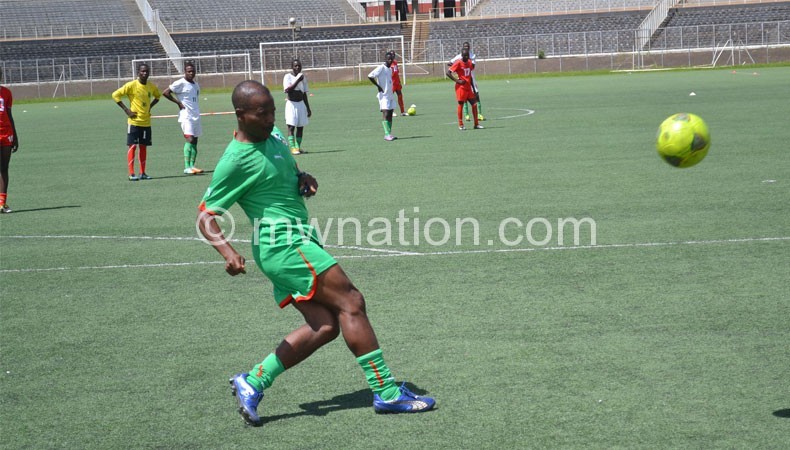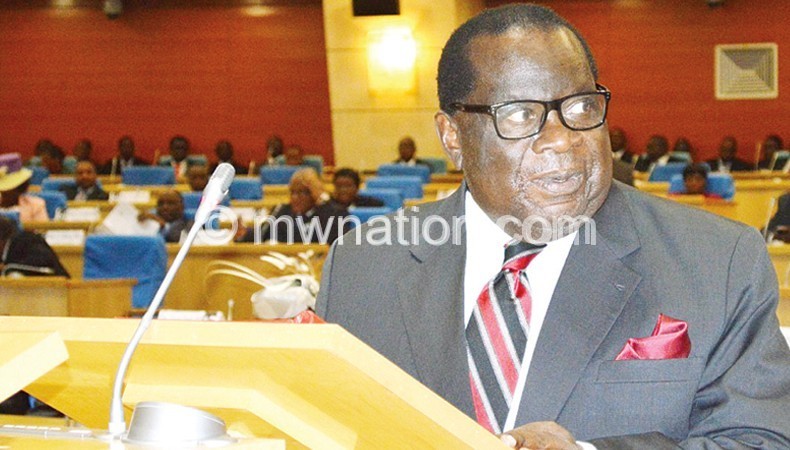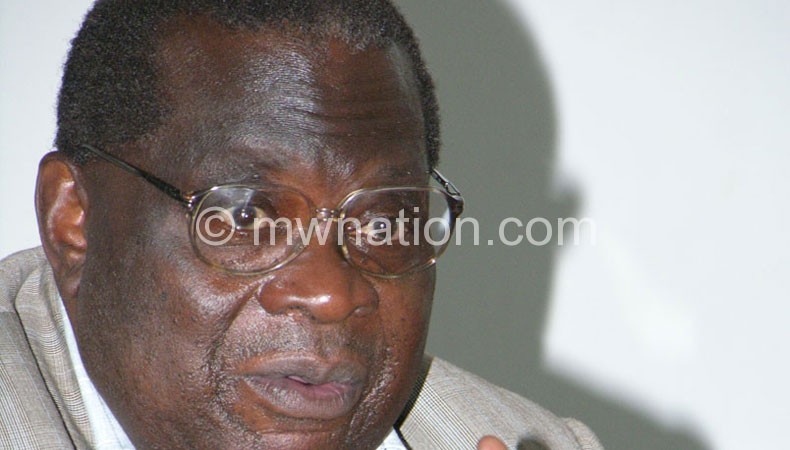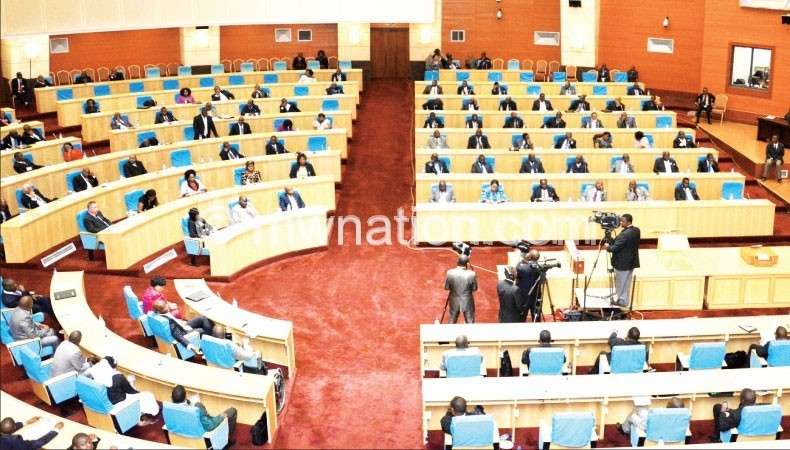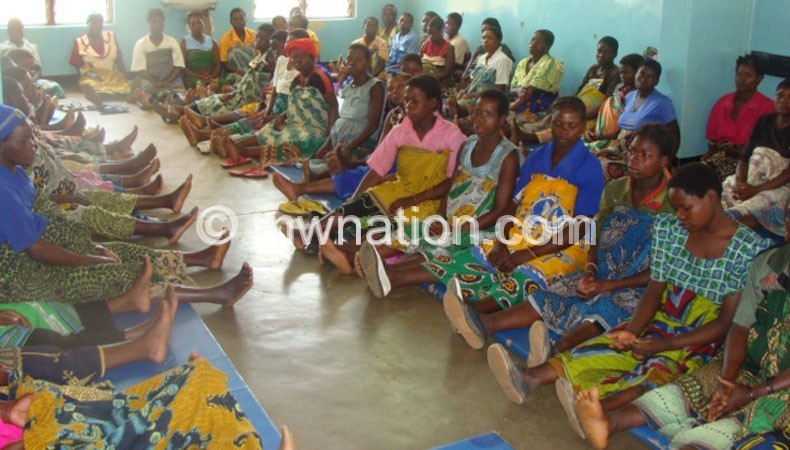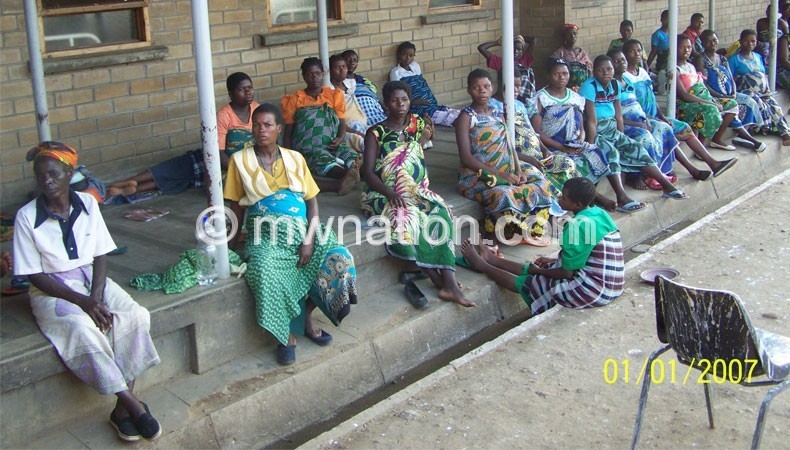![money]()
Ever since thugs robbed him of his tobacco sales three years ago, Stanford Bengo has developed a progressive phobia for carrying cash around.
This phobia was not eased when his earnest attempt at opening an account was snubbed by a bank for lack of proper identification. Since then, he has always viewed banks more as a hassle than a convenience.
![money]() And so, when a group of eagerly enthusiastic young men stormed Nsalu Trading Centre in rural Lilongwe, singing the mobile money gospel on market recently, Bengo was an enthusiastic listener.
And so, when a group of eagerly enthusiastic young men stormed Nsalu Trading Centre in rural Lilongwe, singing the mobile money gospel on market recently, Bengo was an enthusiastic listener.
Not that he had prior knowledge of mobile money, but was excited when the group, aided by booming music atop a mobile van, explained how one can use one’s mobile phone as a banking facility.
“I am a typical villager. Banks always give me chills because, apart from the fact that I have to go into town to withdraw or deposit my money, I also cannot write so I am a little embarrassed when it comes to banking business. Add this to the fact that I have no identification card,” he explained as soon as he had registered for mobile money accounts on both his Airtel and TNM networks.
“My friend, this makes my life very, very simple,” he smiled, as he returned to man his cassava stall.
Despite it being a fairly new phenomenon in Malawi, mobile money as a system of moving money, is becoming the norm other than an alternative.
ChidiOkpala, head of Airtel Money at Airtel Africa, notes that the spread of mobile telephony in the face of the exclusion of many people from the formal financial system because of socio-economic challenges has given impetus to the mobile money wave.
“For, although only about 10 percent of people with primary or no education have bank accounts, compared with 55 percent of those with tertiary education, the number of people using mobile phones in Africa is the highest in the world, according to a recent study on financial habits by Gates Foundation, World Bank and Gallup World Poll,” he explains.
According to Okpala, mobile money is a substitute both for brick-and-mortar banks and the transfer of cash through, say, bus drivers, as has been the case in many parts of Africa.
And because it empowers people who cannot get to a bank branch or an automated teller machine (ATM) to seek financial services, its availability helps remove the bias of the banking system towards the educated.
According to local mobile money expert and banker, Daud Suleman, the lure of mobile money is one that cannot, and should not, be ignored.
“Look at these statistics: since banking started in Malawi, all the banks combined have managed a total base of 1.2 million customers yet in its two, short years, mobile money has already registered 1.5 million users,” he said.
Suleman noted that users are pulled to mobile money due to its convenience and accessibility.
“We should note that while banks have a combined total of slightly over 170 branches countrywide, mobile money currently has over 10 000 agents and the number keeps growing,” he said.
Suleman says, to keep up, banks need to be more innovative and find creative ways of making the mobile phone a centre of the banking experience.
“Banks need to find ways of making people use the phone for more things than just sending and receiving money and buying airtime. They should make the mobile phone the central point of the banking experience because nowadays people are more familiar with the mobile phone than they are with paper.”
Suleman notes that M-pesa was successful in East Africa because it took advantage of an existing culture of people sending each other money via minibuses.
“What it did is that it just created convenience within that context. In Malawi, we have to find a context in which money moves. What is the money culture? And then build on that. That way we are not reinventing the wheel, but enhancing what people are already doing,” he said, noting that the biggest challenge remains to win over sceptical customers.
“Customers still need to be educated about the benefits of mobile money services and, financial services, in general. The reality is that people who understand the value of savings, or the importance of budgeting, tend to use these services more wisely and more often,” says Suleman.
Enter FHI 360, who are implementing a USaid-funded project called Mobile Money Accelerator Programme (Mmap), which focuses on scaling usage of mobile money to boost financial inclusion in Malawi.
This project comes in view of the many people who remain unbanked yet have access to a basic phone that offers them the opportunity to bank and protect their income through mobile money.
The awareness campaign included road shows, which were implemented in the six project districts of Mchinji, Lilongwe, Mzimba, Rumphi, Mangochi and Blantyre, such as the one encountered by Bengo at Nsalu Market in Lilongwe.
The main objective of the shows was to create awareness and demand for mobile money services.
FHI 360 involved mobile network operators, Airtel Malawi and TNM in the exercise with over 2 500 new registrations being realised during the exercise.
And so, as the story of the mobile phone and its contribution to bridging the digital divide in sub-Saharan Africa continues to unfold, the device’s revolutionary role in facilitating transactions and wealth distribution in the region is shaping up in an unprecedented way.
The post Mobile money is newfashion in Malawi appeared first on The Nation Online.
